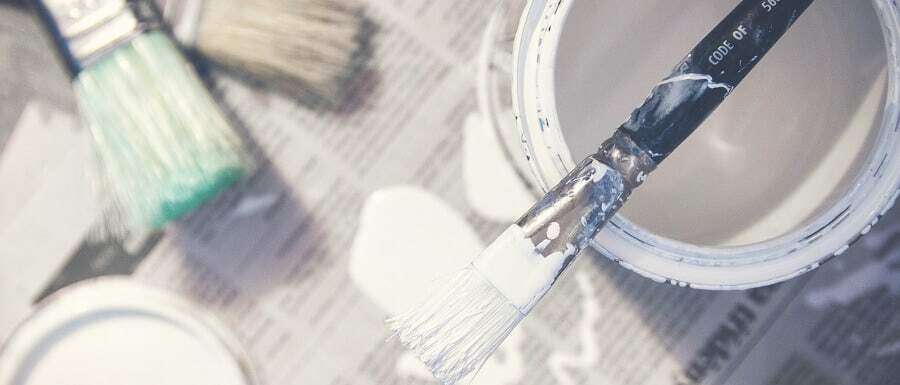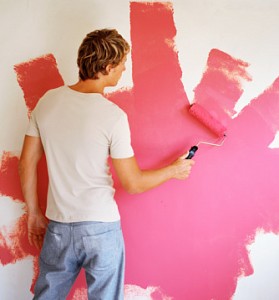We explain the different types of masonry wall coatings. We will help you discover which paint or coating is suitable for your house and the benefits it offers
Is masonry paint best? Are wall coatings better?
Paints and wall coatings come in many forms, mixtures, colours, effects and finishes, but which is right for YOUR home?
Masonry walls require some form of protection after they are built, or the weather, and the elements in the atmosphere in general, would erode the wall, causing great, and irreparable damage.
Let’s consider which is the best exterior paint for your house.
The most common type of masonry coating is of course masonry paint, the type that anyone can buy in a DIY shop.
The results of painting with a normal paint, to the exterior of a house are sometimes not quite as expected, especially if the painter is a novice.
Exterior masonry wall coatings? Are they best?
The challenge is to find a suitable masonry coating or covering that not only looks good, but is SUITABLE for the wall the coating is being applied to, and the factors of longevity, durability, weather resistance in all temperatures, and value for money!
What types of Masonry Coatings exist and what should they be use for?
1. Exterior Masonry paint:
This is, as above, the most common form of masonry coating and it’s durability is usually related to the initial cost:
Buy a cheap tin of paint and you would be best pouring it away rather than trying to paint with it!)
Paint also will only last as long as the competence of the person painting.
If the paint is of a good quality and is applied by a professional painter and decorator, an estimated lifespan of only about 2 years maximum before the paint fades, cracks and flakes, is optimistic to say the least.
If your home has painted masonry walls, you would be only too aware of the cost over the years of having the house painted, then painted again, and again, and so on………
The main drawback is that often people paint masonry walls with a total lack of preparation before painting, and then stand back and scratch their heads and wonder why all that effort and hard work has resulted in the wall looking terrible even if they used the best masonry paint!
DIY paint is decorative only and will NOT protect the wall substrate.
SUITABILITY: This type of paint is best for small areas or for “tarting up” the garden wall, for example.

Masonry paint may be cheaper initially, but over the long term, you may as well not bother!
2. Textured Resin-based Wall Coatings
These wall coatings in our opinion, are the best for masonry walls as, not only does a great deal of preparation precede the application of a textured masonry wall coating, it brings many benefits that paint does not.
This type of wall finish does NOT: Peel, fade, crack, flake or fade! An added bonus is the fact they also stop instances of penetrating damp.
To ascertain whether textured coatings are suitable for your home, why not take a look at the gallery pages of finished wall coated homes?
The gallery pages consists of project pages where you see and read about a selection of jobs done by the teams at NPA pro wall coating installers, and there are LOADS of examples, so why not take a look?
SUITABILITY: Most walls, with the correct preparation, will accept a masonry wall coating like this, although very old homes built with Adobe or Devon cob, would NOT be suitable.
3. Fine textured masonry wall coatings
We supply and install the best exterior wall coatings in all different grades and therefore, the fine textured version of the masonry coated we looked above, is ideal for smooth render walls or walls with a brand new coat of render.
Once again, this depends on personal preference, the cost is the same as a course grade coating.
SUITABILITY: Smooth rendered walls
4. Smooth masonry wall coatings
Once again, we revisit the NPA range of coatings and the smooth finish is ideally suited for smooth rendered properties of render or stucco, and especially for painting listed buildings where a texture finish, no matter how fine, would be unsuitable.
SUITABILITY: Walls in excellent condition and some listed buildings.
5. GRC Coloured “Through Render” Masonry wall coatings
A more recent addition to exterior wall solutions, coloured render masonry coatings are suitable for more or less ANY wall surface and can dramatically change the appearance of any property.

Cons: We have seen studies where direct sunlight on a wall with coloured render can cause it to crack. This sometimes happens with darker colours but its rare nevertheless.
In my time working for the company in Spain, I saw this type of render used widely and was known there as MONOCAP
SUITABILITY: Any home or commercial building, especially ones requiring a degree of insulation.
6. Clear coat, “invisible” masonry wall coatings and damp proofing.
When you have a wall that is not painted and you do not wish to have it painted, a transparent wall coating is the ideal solution.
These coatings are highly durable and come with a full wall restoration package from our expert installation teams.
It has special dispersing agents added to give maximum depth of penetration into the wall.
This durable waterproof wall coating is IDEAL for those who wish to protect their homes from damp, erosion and the wet weather. The product has also been proven to halt the effects of EROSION in your walls.

SUITABILITY: Unpainted brick or natural stone walls, concrete etc.
So which is the best product for your house, exterior masonry paint or protective masonry coatings?
If you have decided which coating you would like to find out more about, or if you still haven’t the foggiest idea, don’t worry!
Call the team today for impartial advice on what’s best for your house.
Phone us FREE on (0800) 970 4928 or use our contact form to request a quote for a wall coating

